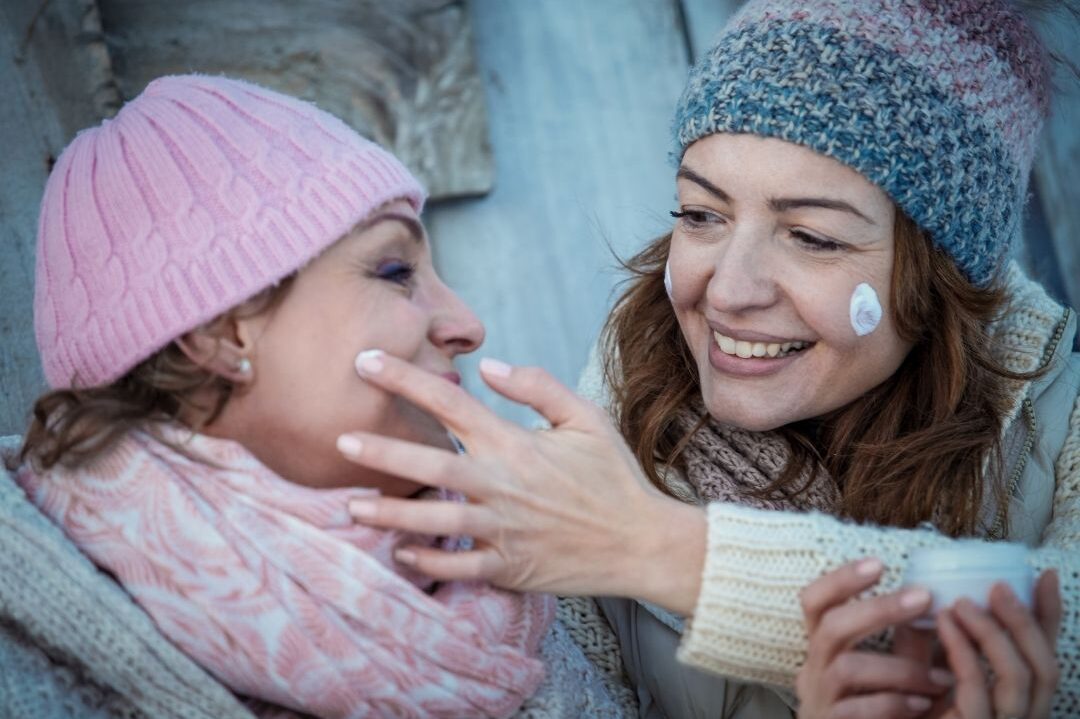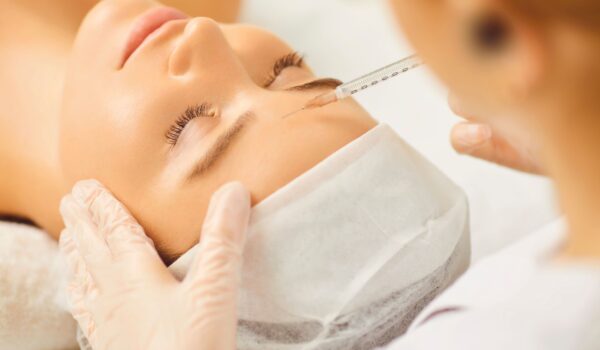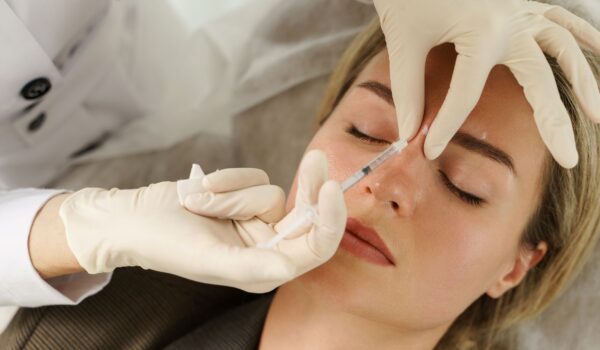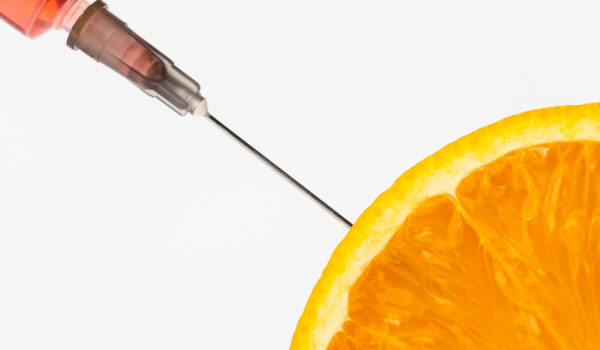Top 10 Winter Skincare Issues and How To Treat Them
-
By: Adam Diwan
-
October 17, 2023
As winter approaches, it brings unique challenges and concerns regarding skincare. Many clients seeking to combat the effects of cold temperatures, such as dry skin in winter, turn to aesthetic solutions. Therefore, it’s crucial to anticipate these changes and provide the best guidance to those wanting cosmetic answers.
This article explores the top 10 skin issues with the harsher weather and our winter skincare tips to address them.
1. Dry and Irritated Nose
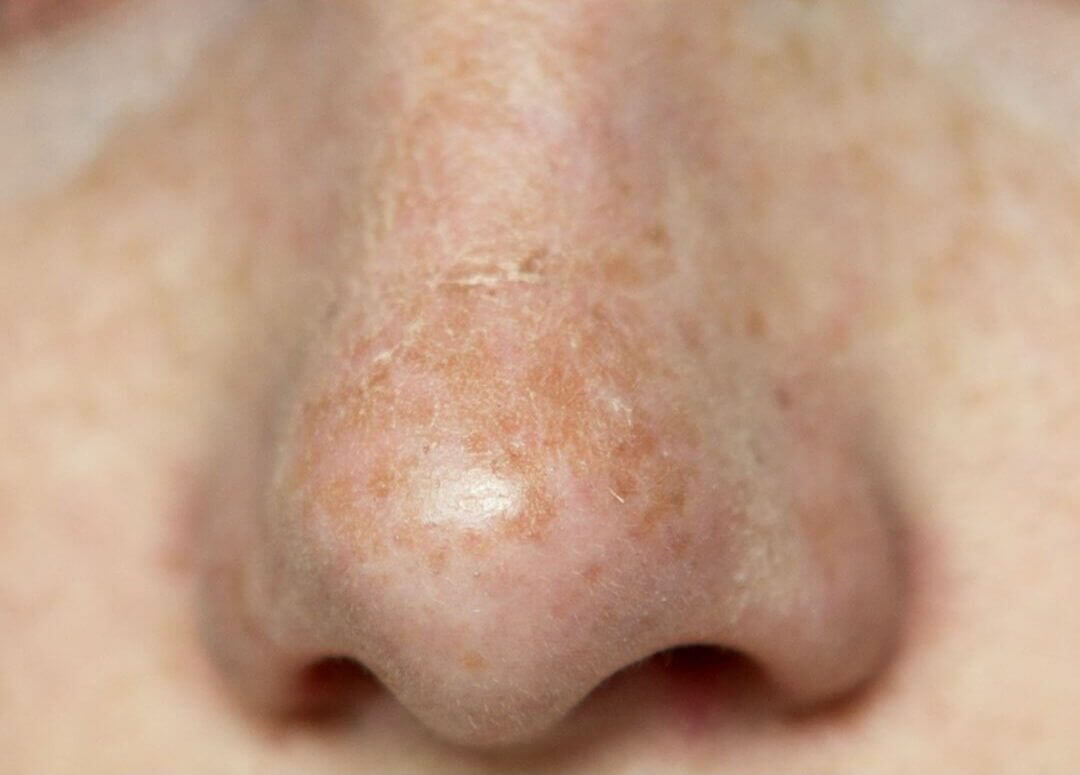

Colds and flu can cause discomfort and the potential for a dry and irritated nose. To help your clients combat this skin issue, here are some essential tips:
Gentle Cleansing
Clients can use a fragrance-free cleanser for the face, and avoid harsh or drying soaps that can exacerbate dryness.
Moderate Washing
Advise clients to wash their face no more than twice a day to prevent over-cleansing, which can strip the skin of its natural oils.
Avoid Hot Water
Caution against using hot water on the nose, as it can further deplete moisture. Lukewarm water is a better choice.
Hydrate with the Right Moisturiser
Suggest using a fragrance-free, hypoallergenic moisturiser suitable for sensitive skin. The client should apply this moisturiser to their nose after cleansing.
Moisture-Retaining Ingredients
Recommend skincare products that contain hydrating ingredients like hyaluronic acid and ceramides to lock in moisture.
Introduce a Humidifier
Suggest using a humidifier in the home to combat dry indoor air, which can aggravate nose dryness.
Avoid Nose Picking
Emphasise the importance of avoiding nose-picking to prevent further irritation.
Consult a Dermatologist
If the issue persists, advise clients to seek guidance from a dermatologist for personalised solutions.
2. UV Damage
Winter may be colder, but it can still bring UV damage. The sun sits lower in the sky during winter, which can lead to deceptive UV exposure. Even on overcast days, UV rays can penetrate and harm the skin.
Here’s what you need to know about how to safeguard a client’s skin:
Sun Care
Recommend sun creams or lotions as part of your clients’ winter skincare routine. Since the sun is closer to the Earth in winter, these products offer UV protection, shielding the skin from damage caused by the sun’s rays.
Hydration and Rejuvenation
Winter skincare isn’t just about protection. Encourage your clients to keep their skin hydrated and rejuvenated. Products like Profhilo Haenkenium can help replenish and revitalise the skin.
3. Eczema
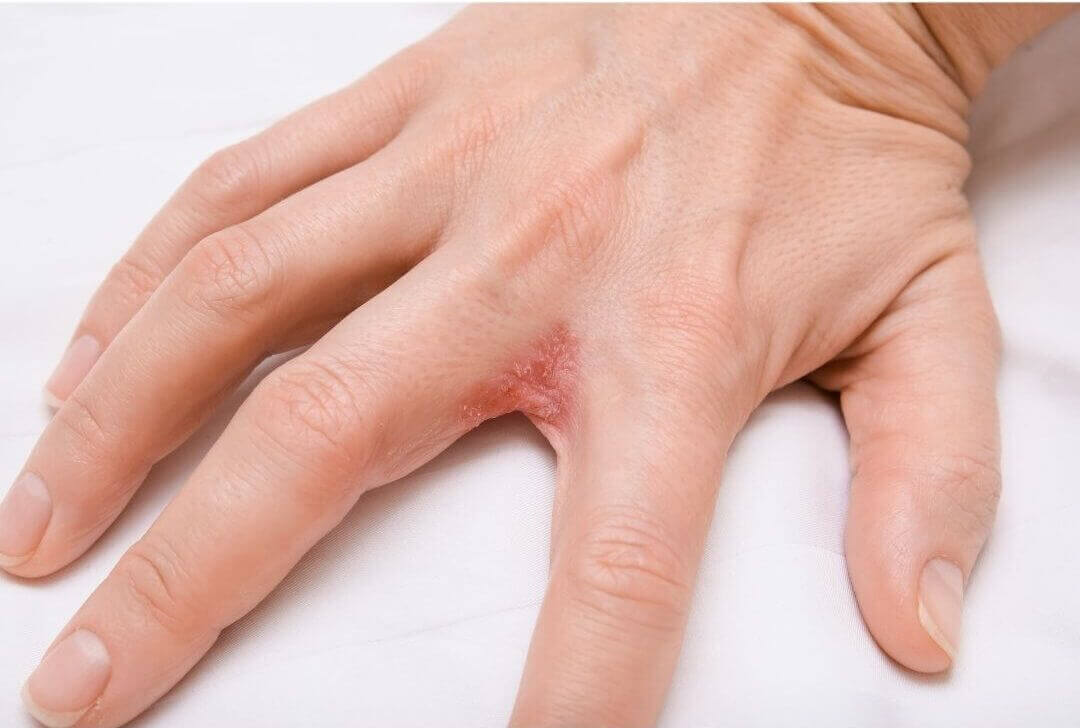

Colder temperatures and dry air can be particularly harsh on sensitive skin, often exacerbating eczema symptoms. To assist your clients, consider the following for treating eczema in winter:
Hydration is Key
Emphasise the importance of regular moisturisation. Encourage clients with Eczema to use a fragrance-free, hypoallergenic moisturiser to lock in moisture and create a protective barrier on their skin.
Avoid Irritants
Potential irritants in skincare products, clothing, and detergents can impact eczema. Recommending gentle, non-irritating skincare products and detergents can make a significant difference.
4. Chapped Lips
Chapped lips in winter are a common and often uncomfortable issue. To guide your clients through the delicate care of their lips during this season, consider these practical tips:
Keep Lips Hydrated
Maintaining adequate hydration by drinking more water throughout the day can help clients with chapped lips.
Avoid Habits that Aggravate Lips
Remind clients to resist the temptation to pick, tug, or bite dry skin on their lips, which can worsen chapping and lead to painful cracks.
Featured Hydrating Lip Care Products
Recommend specialised lip care products like Teoxane 3D lip gel. These products provide a hydrating gel that can offer instant relief for dry and chapped lips, keeping them soft and smooth.
5. Acne
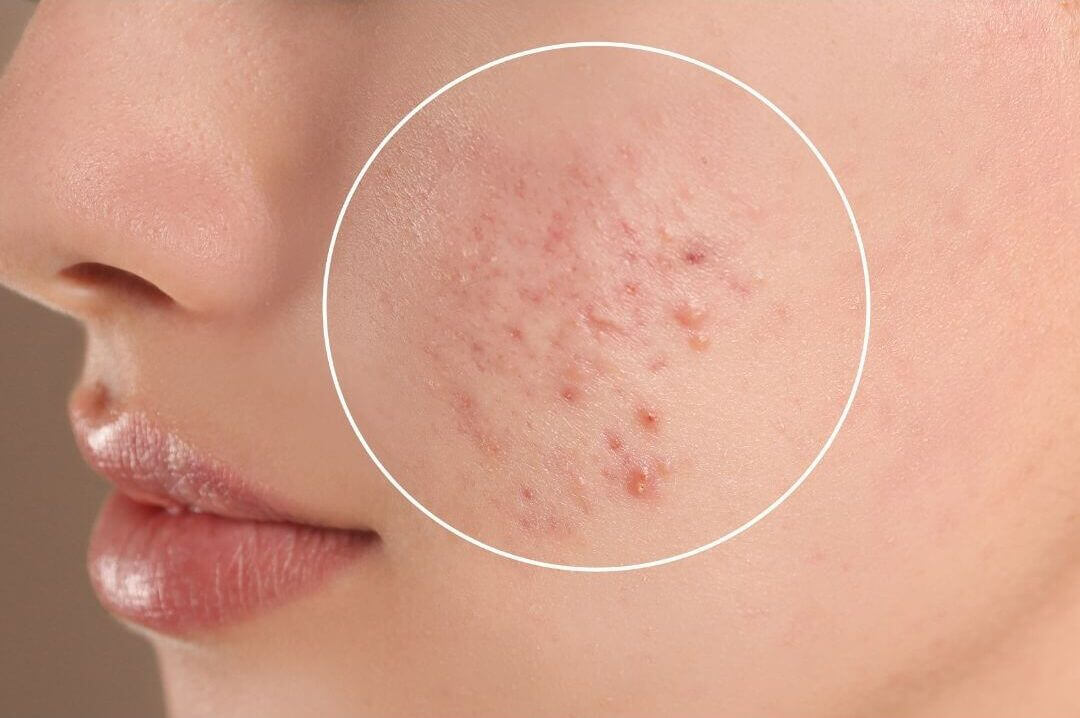

Individuals suffering from acne may experience changes to their skin during the colder months. However, there are several things they can do to help winter acne:
Maintain Cleanliness
A consistent and gentle cleansing routine is a great way to lessen acne. Regularly cleansing the skin helps remove excess oil, dirt, and impurities that can contribute to acne.
Choose Non-Comedogenic Products
Non-comedogenic skincare and makeup products are specially formulated to minimise pore-clogging, reducing the risk of acne breakouts.
6. Dandruff
Dandruff can escalate due to cold, dry air and increased use of heating systems. To help your clients maintain a flake-free scalp and healthy hair this winter, consider the following recommendations:
Dandruff Shampoo
Suggest the use of a specialised dandruff shampoo. These shampoos contain active ingredients designed to combat dandruff and soothe the scalp.
Regular Shampooing
Keeping the scalp clean helps prevent the buildup of flakes, so skincare clients should shampoo their hair regularly.
Opt for Lukewarm Water
Washing hair with hot water can strip the scalp of its natural oils. Lukewarm water is a gentler alternative.
Scalp Massage
Recommend gentle scalp massages to stimulate blood flow and promote a healthier scalp.
Humidifiers
Just like with dry and irritated noses, suggest using humidifiers in indoor spaces to combat the dry air that can exacerbate dandruff.
Stress Management, Diet, and Hydration
Managing stress, maintaining a balanced diet, and staying hydrated can affect overall skin and scalp health.
7. Rosacea
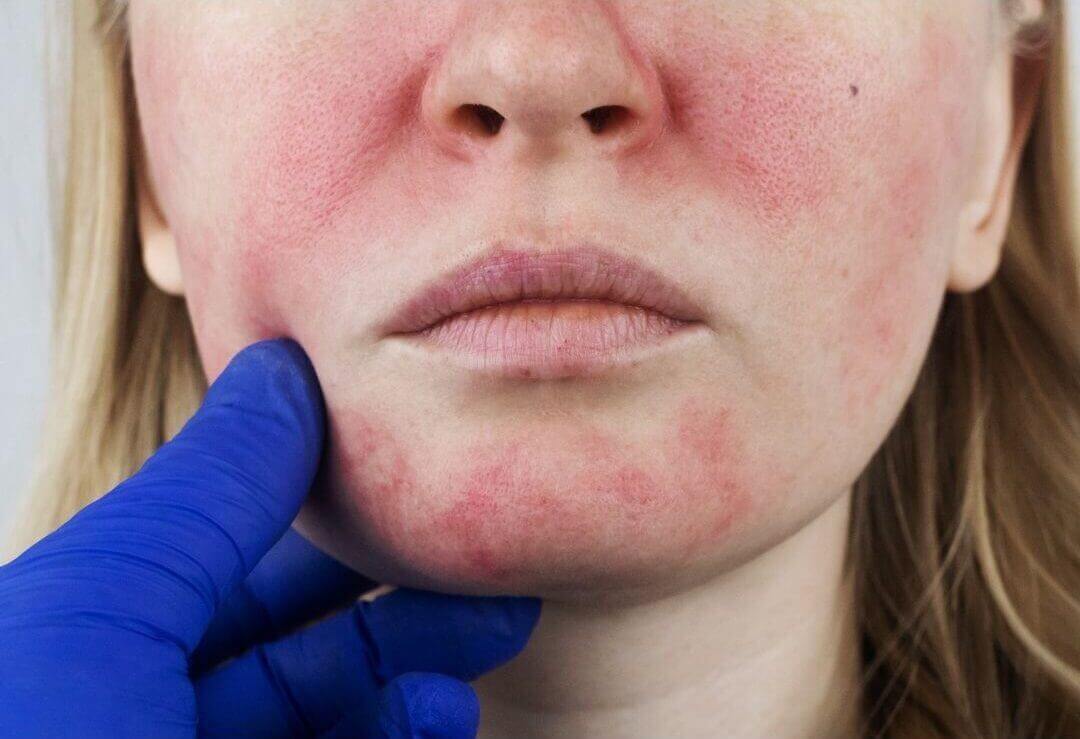

Rosacea, a long-term inflammatory skin condition that often manifests as redness and a rash, typically affects the nose and cheeks. Winter’s harsh conditions can exacerbate rosacea symptoms.
Like with other conditions, moisturising and humidifiers can help with this issue. The following are additional steps your client can use to help their dry skin rash in the winter:
Sunscreen is Essential
Reinforce the importance of sunscreen, even in winter. UV rays can still aggravate rosacea, so recommend broad-spectrum sunscreen with an SPF of 30 or higher.
Stay Warm and Protected
Skincare clients should keep their faces warm and protected from cold winds by wearing scarves or face masks when necessary.
Avoid Hot Water
As with other winter skincare concerns, advise against using hot water on the face, as it can worsen rosacea symptoms. Lukewarm water is gentler.
Gentle Skincare Products
Suggest using skincare products free from harsh chemicals and fragrances. Opt for gentle, hypoallergenic options that won’t irritate sensitive skin.
8. Psoriasis
Psoriasis, a skin condition characterised by the development of flaky patches of skin that form scales, can be particularly challenging during the winter months. Here’s how to help your clients manage psoriasis effectively:
Vitamin D Benefits
Highlight the potential benefits of Vitamin D for psoriasis. A medical professional may recommend a topical treatment, such as a cream.
Consider Vitamin D Supplements
Sometimes, a healthcare professional may recommend Vitamin D injections or supplements to help alleviate psoriasis symptoms. Encourage clients to consult with a dermatologist for personalised advice.
9. Windburn


Skin windburn is a prevalent winter condition characterised by redness and pain after exposure to cold, windy air. To help your clients alleviate the discomfort and protect their skin, consider these essential tips:
Seek Shelter
The most straightforward treatment is to minimise exposure to cold and windy conditions. During extreme weather, skincare clients would benefit from staying indoors.
Soothing Aloe Vera
Suggest applying Aloe vera gel to the affected areas. Aloe vera’s natural soothing properties can provide relief from redness and irritation.
Wrap Up Warm
Emphasise the importance of protecting the skin from further exposure. Recommend warm clothing, including a scarf and hat, to protect the face from the harsh elements.
For windburn on the lips:
Stay Hydrated
Drinking plenty of water can maintain lip hydration.
Avoid Hot Beverages and Spicy Foods
Hot drinks and spicy foods can exacerbate lip irritation. Suggest avoiding them during windburn episodes.
Resist Picking
If somebody picks at their lips, it can worsen the condition.
Use a Thick Lip Balm
Recommend the daily use of a thick, moisturising lip balm to prevent further chapping and protect against future windburn.
10. Facial Flaky Skin
Cold air tends to hold less moisture, leaving your clients’ exposed facial skin susceptible to flakiness. To help them maintain a smooth complexion, consider the following:
Wash The Face Gently
Over-cleansing can exacerbate flakiness. To remove impurities whilst avoiding this, clients should gently wash their face no more than twice a day.
Regular Moisturisation
Emphasise the importance of daily moisturising. A high-quality, hydrating moisturiser can create a protective barrier and lock in essential moisture.
Lukewarm Water
If the water is too hot, it can remove the skin’s natural oils. Instead, clients can use lukewarm water when washing their face and limit the time spent in hot baths or showers.
Skin-Friendly Fabrics
Recommend using skin-friendly fabrics for bed linens and facial clothing, such as scarves. Soft, non-irritating materials can help prevent further irritation.
Itchy Skin Relief
If their skin becomes itchy, suggest applying a clean, cool, damp cloth to the affected area. This can provide soothing relief.
Need more skincare products for your clients in the winter?
Here at Revolve Medicare, we have various winter skincare products to support your clients. If you want to help your clients with their skin, contact us today and see how our products can improve their routine.
Related Posts
-
By: Adam Diwan
-
January 8, 2024
Top 5 Aesthetic Trends for 2024
-
By: Adam Diwan
-
January 2, 2024
The Different Types of Aesthetic Injection Processes Explained
-
By: Adam Diwan
-
December 27, 2023
8 Reasons to Offer Vitamin Injections to Your Aesthetic Clients
-
By: Adam Diwan
-
December 19, 2023
How to Set Weight Loss Goals for 2024
-
By: Adam Diwan
-
December 14, 2023
Non-Surgical Solutions For Losing A ‘Mum-Tum’
-
By: Adam Diwan
-
December 5, 2023

